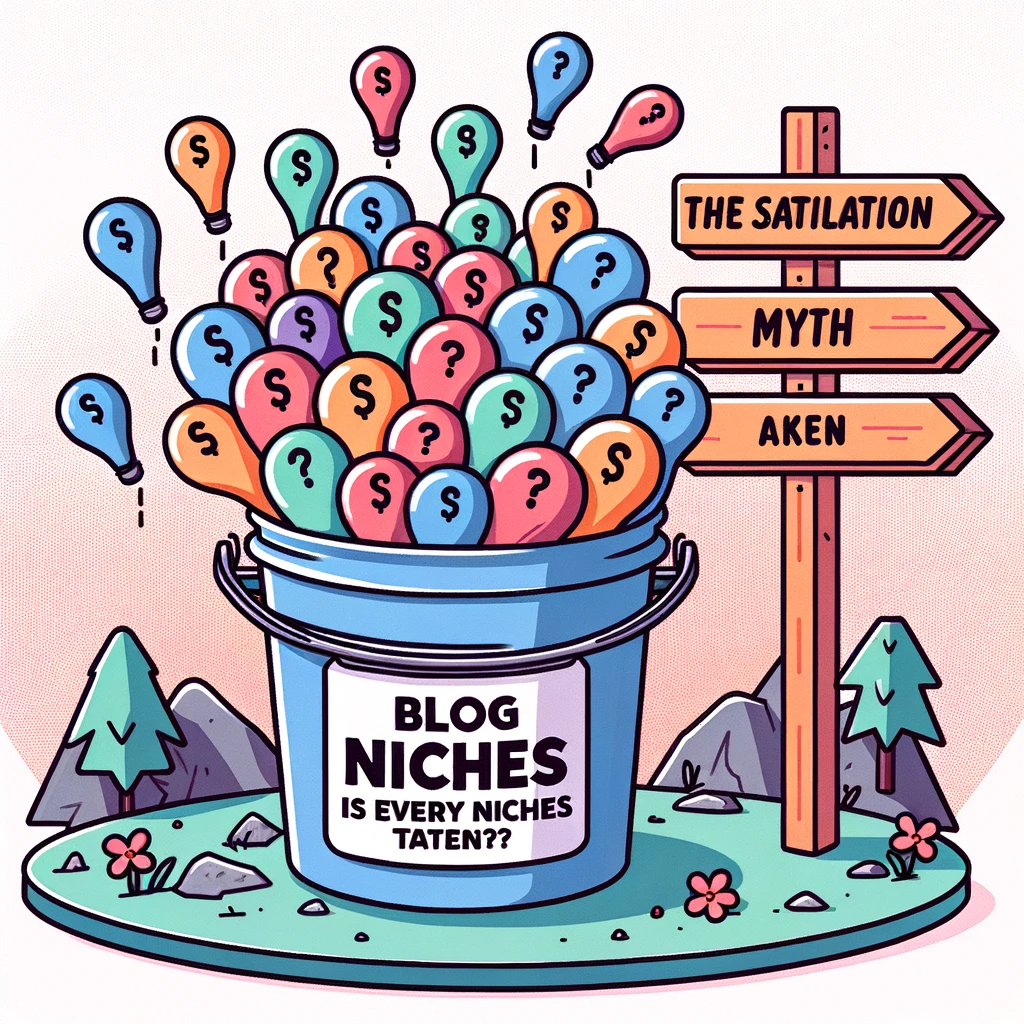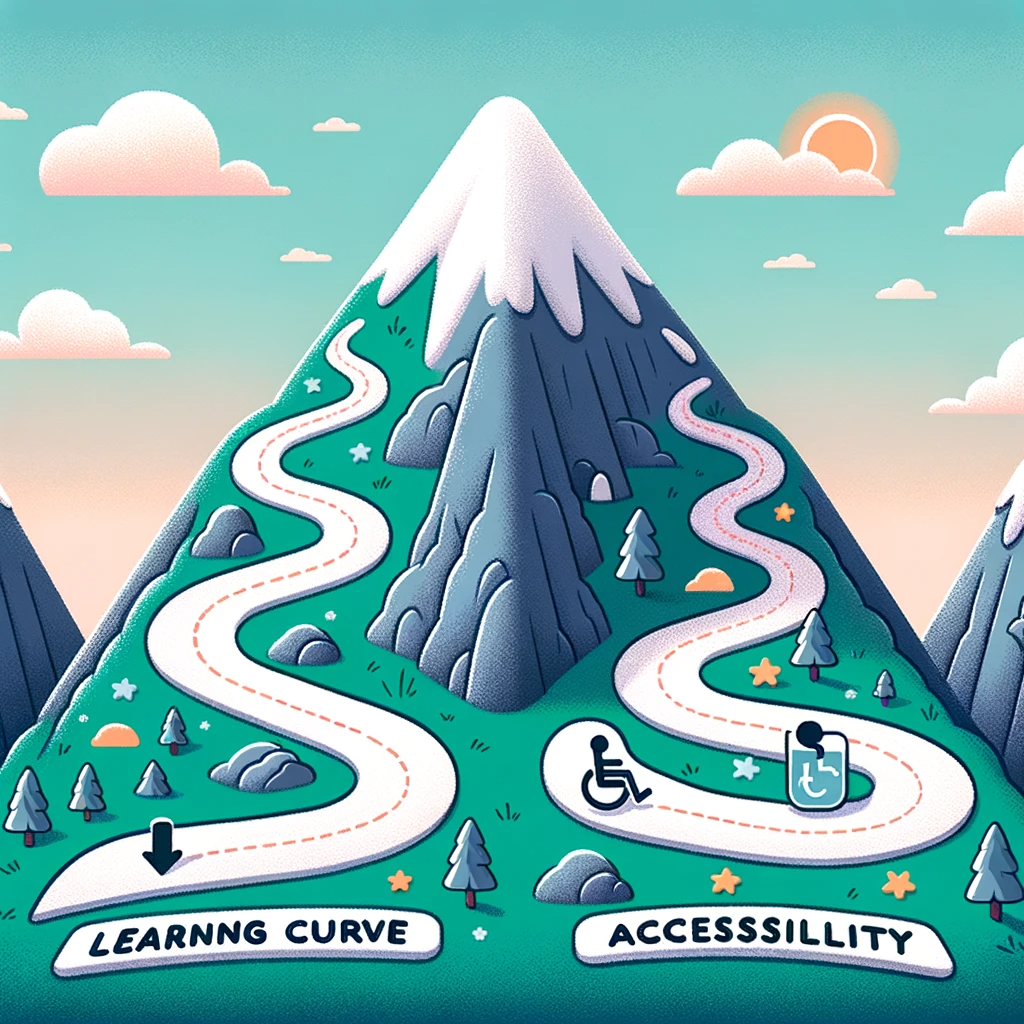The blogging world has undergone a seismic shift in recent years.
It’s no longer just about sharing your thoughts or expertise but delivering value in a landscape dominated by algorithms and AI technologies.
The rise of AI tools like ChatGPT and Google’s AI-centric updates have changed the game’s rules.
If you’re considering starting a blog in 2024, you must understand these changes to navigate the landscape effectively.
You’re not just competing with other bloggers but with AI-generated content and ever-changing search algorithms.

The Impact of Google’s AI-Centric Updates on Blogging
Google’s role in the blogging ecosystem cannot be overstated.
It’s the primary source of organic traffic for most blogs.
The search giant has increasingly integrated AI and machine learning into its algorithms.
Traditional SEO tactics, like keyword stuffing and link farming, are becoming obsolete.
Instead, Google’s algorithms are getting better at understanding context, relevance, and user intent.
This is where AI tools like ChatGPT can offer a significant advantage by helping you create content that aligns with these new algorithmic preferences.
The Role of ChatGPT in Modern Blogging
ChatGPT is revolutionizing the way we think about content creation and SEO.
It’s not just a tool for drafting articles; it’s a multi-faceted AI that can help you in various aspects of blogging.
From generating topic ideas based on current trends to suggesting SEO strategies tailored to Google’s latest updates, ChatGPT is a powerhouse.
It can even analyze your existing content and suggest improvements, making it easier to update old posts to align with new SEO best practices.
The Saturation Myth: Is Every Niche Taken?

The notion that it’s too late to start a blog because all niches are saturated is a defeatist mindset.
While it’s true that there’s a lot of content out there, the demand for high-quality, relevant, and up-to-date information is evergreen.
With AI tools like ChatGPT, you can easily conduct market research to identify gaps in existing content and find opportunities for differentiation.
Remember, your unique voice and perspective can be your most significant assets.
The Financial Aspect: Is Blogging Still Profitable?

The financial viability of blogging is a complex issue.
While ad revenues have been dwindling, new monetization strategies have emerged.
Affiliate marketing, sponsored posts, and even subscription models are now commonplace.
AI tools can help you identify your niche’s most profitable monetization strategies, optimizing your revenue streams.
The Technical Side of Blogging: Easier Than Ever?
Starting a blog has never been easier from a technical standpoint.
Platforms like WordPress, Wix, and Squarespace have democratized the process, offering user-friendly interfaces and pre-designed templates.
AI tools can simplify the process by analyzing your site’s UX and suggesting improvements, ensuring you’re not losing visitors due to technical issues.

Content Strategy in the Age of AI
Content strategy has evolved to become more sophisticated and data-driven.
AI tools can analyze user behavior and engagement metrics and predict future trends.
This allows you to create a content calendar that meets your audience’s needs and anticipates future questions.

Audience Engagement in 2024
Audience engagement is a multi-channel endeavor in 2024.
It’s not just about your blog anymore; it’s about creating an ecosystem around your brand.
This includes social media, email newsletters, podcasts, and even AI-driven chatbots that can engage with your audience 24/7.
The more touchpoints you have, the more opportunities you create for engagement and conversion.
SEO in 2024: Beyond Keywords
SEO is not just about keywords and backlinks; it’s about creating a seamless user experience.
Page load speed, mobile optimization, and high-quality content are as important as keyword optimization.
AI tools can analyze all these factors in real time, allowing you to make data-driven decisions.
How to Stand Out in a Crowded Market
The sheer volume of online content can make standing out a daunting task.
However, quality always trumps quantity.
By focusing on creating high-value content and using AI tools to optimize for SEO, you can carve out a space for yourself even in the most saturated niches.
The Future of Blogging: What to Expect
The future of blogging is not set in stone; it’s a dynamic field that is continually evolving.
We can expect greater integration of AI and machine learning technology in content creation and SEO strategies.
Staying updated on these technologies will be crucial for anyone looking to start or maintain a successful blog in the future.
Will AI Take Over Websites or Google, Making it Harder for Humans?

The rise of AI technologies like ChatGPT has led to much speculation about the digital landscape’s future, particularly in website creation, content generation, and even search engine algorithms. While AI has the potential to automate many tasks, the question arises: Will it make it too difficult for humans to compete?
The Human Element in Content Creation
AI can generate content but lacks the emotional intelligence and nuanced understanding that a human writer brings. While AI can assist in tasks like SEO optimization and data analysis, the creative aspect of blogging or website management is inherently human.
AI in Search Algorithms
Google and other search engines already use machine learning algorithms to improve search results. However, these algorithms are designed to enhance the user experience, not replace human input. They aim to understand human behavior better, not eliminate the need for human-generated content.
Accessibility and Learning Curve

AI tools are becoming more user-friendly, making them easier for people without a technical background. However, the effective use of AI in website management or SEO still requires a learning curve. It’s not so complex that it’s prohibitive, but a learning process is involved.
Ethical and Regulatory Considerations
As AI continues to advance, there will likely be ethical and regulatory considerations that could limit the extent to which AI can be used in certain applications. This could serve as a balancing factor, ensuring that humans remain integral to the digital ecosystem.
We Still Need Humans
While AI will undoubtedly play an increasingly significant role in the digital landscape, it’s unlikely to make it “too hard” for humans to participate.
Instead, AI will serve as a tool to augment human capabilities, not replace them. The key will be for humans to adapt and learn how to work alongside these advanced technologies effectively.
FAQs
Is it too late to start a blog in 2024?
Absolutely not. With the right strategies and tools, especially AI-powered ones like ChatGPT, there’s always room for quality content.
How can AI tools like ChatGPT help in blogging?
They can assist in multiple areas, from content creation and SEO optimization to audience engagement, making them invaluable tools for modern bloggers.
Is AI making it harder for individual bloggers?
AI is a tool, not a competitor.
While it’s becoming more advanced, it can’t replace the unique qualities you bring to your blog.
How can ChatGPT help me find a niche?
ChatGPT can analyze data points like market trends, search volumes, and social media buzz to help you identify a profitable niche.
Is blogging still a viable option in 2024?
Yes, especially if you’re willing to adapt to new technologies and trends.
How do I drive traffic to my blog?
A solid SEO and content strategy is essential for driving organic traffic.
ChatGPT can assist in both.
What are the monetization options for bloggers?
From affiliate marketing to selling digital products and services, there are numerous ways to monetize your blog.
Bottom Line
Starting a blog in 2024 is far from being too late.
The landscape is evolving, and new technologies like ChatGPT level the playing field.
By understanding the impact of AI and staying adaptable, you can carve out your own space in the blogging world.
